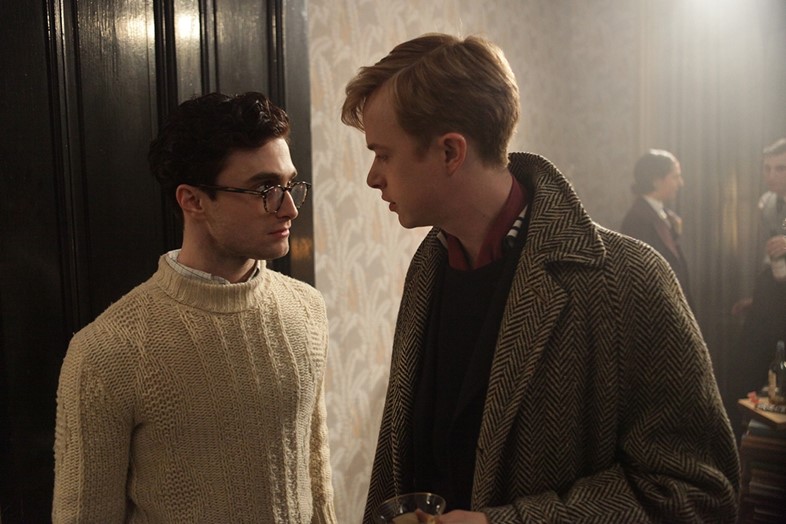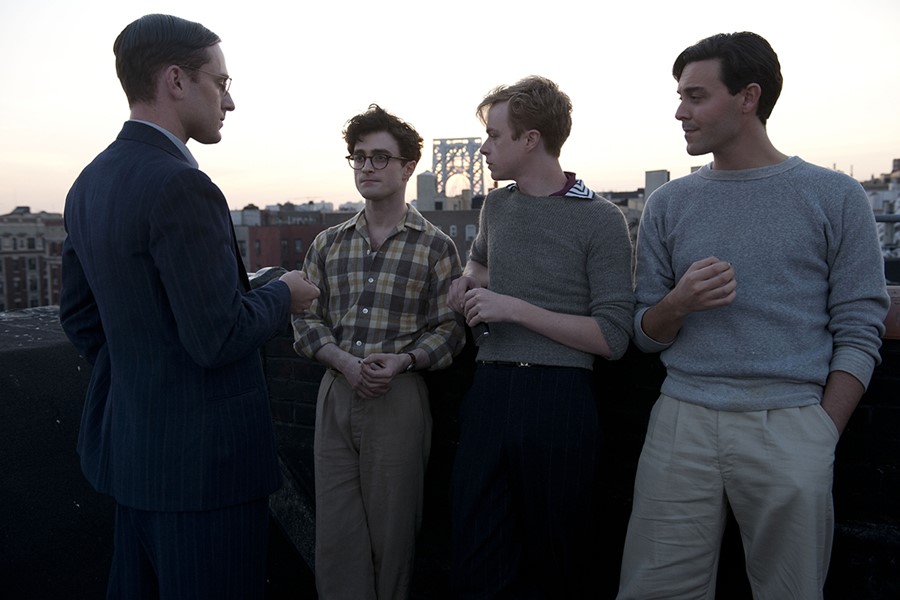Director John Krokidas talks five key elements behind his accomplished debut Kill Your Darlings, a film that chronicles the murder-tainted conception of the Beat generation
Hot on the heels of Jeffrey Friedman and Rob Epstein's Howl (2010) and Walter Salles' On the Road (2012) comes another homage to the Beat generation in the form of Kill Your Darlings, a new film by first-time director John Krokidas. But refreshingly, Krokidas' debut focuses on a lesser-known, more sinister element of the esteemed epicureans' history – the murder of English teacher David Kammerer by his (very much in denial) ex-lover, early Beat pioneer Lucien Carr.
While the story is readily accessible in the form of William Burroughs and Jack Kerouac's joint novel And the Hippos Were Boiled in Their Tanks (both men were arrested as material witnesses), what makes Kill Your Darlings so unusual is that it is told from the perspective of a young Allen Ginsberg, played by Daniel Radliffe, who met and fell under the spell of Carr upon arriving at Columbia University in 1943. The film is an arresting, headily stylish affair that draws you into the exclusive, beguiling and aspirational world created by Carr, Kammerer and their peers, through the eyes of its fresh-faced protagonist, in a way that enjoyably echoes Donna Tartt's coming-of-age, equally murder-centric masterpiece The Secret History. Radcliffe, brilliant as the nerdily endearing Ginsberg, is complemented by a similarly excellent cast, from rising star Dane DeHaan as Carr and Dexter's Michael C. Hall as Kammerer to Ben Foster as Burroughs, Jack Huston as Kerouac and Elizabeth Olsen as Kerouac's girlfriend Edie.
Here, Krokidas talks us through five key elements surrounding the film, from his inspirations to his close working relationship with Radcliffe.
"I wanted this film to appeal to people who are going through their own personal self-discovery and wanting to start the revolution themselves"
On inspirations
I remember hearing that for The Ice Storm Ang Lee put together this 40 page book of the 1970s – from great historical moments to fonts that were used, to wallpapers to colours, music, you name it – and so I did a similar thing with the 1940s. And then I created this whole ark for the film, of going from a place of conformity, of college students lined up in rows, to non conformity at the end of the movie, mirroring the characters' journey. The movie is set in 1944, the year that Double Indemnity won best picture. It was a high point for American film noir and we thought, “Hey well this film does start with murder.” So we started the movie in much more controlled and composed manner, reminiscent of a film noir, and then had the film progress to where film noir progressed, which is once it got into the hands of the French New Wave. Then in terms of other film references, there were the post film noir movies of Jean Pierre Melville, combined with Peter Jackson’s Heavenly Creatures combined with 80s nerds-against-the-system comedies like Real Genius with Val Kilmer!
On challenges
There was one night when we were shooting at Columbia University where there was a scheduling mishap and we were shut down four and a half hours early and we still had three scenes left to shoot. And the incredibly experienced Ben Foster, god bless his soul, said to me, literally as they were striking equipment, “John, we’re all in costume, we’re all right here, why don’t you just have us run down the steps of the library and no matter what you’ve shot up until this point, at least you know we have an end to this sequence?" And so we literally stole that shot. It was just the DP, me and the actors as everyone was moving equipment and being policed by members of Columbia University. And then we also stole the scene with Daniel Radcliffe and Dane DeHaan on the steps of the University library, when Ginsberg convinces Lucien Carr not to leave school. That was done in 12 minutes.

Kill Your Darlings is in cinemas from this Friday December 6.
Text by Daisy Woodward
On honour slaying
In 1944 you could literally get away with murder by portraying your victim as a homosexual. It’s shocking! It seems like a dark mark in history but look at what’s happening in Russia right now – these Nazi gangs physically abusing and beating up potential homosexuals and this being condoned by the police. So while this movie is not a political movie overtly, to me that was a real entry point into why I needed to tell this story.
On Daniel Radcliffe
One of the great things about working with Daniel was that we had the chance to start rehearsing two months before production. I would meet with him once a week whilst he was doing How To Succeed on Broadway. I had studied acting as an undergraduate student at Yale: I was a horrible actor myself but it at least gave me a vocabulary and enabled me to communicate with actors. So like with all the other cast members, I asked Dan if there was a method he preferred, how he liked to work. He looked at me curiously; he was like, methods? And I realised, of course he’s never taken an acting class in his life, he’s been working on instinct since he was a child. So I said: “Dan, do you want to learn one?” “Absolutely!” And Dan is so smart and intellectualises everything, so I taught him The Meisner Technique – which gets you out of your own head by focusing all of your actions and what you’re doing on the other character – and he loved it! And in return there was so must trust and it was such a great relationship beween us that I could go: “Dan, I have no idea what the fuck I’m doing, what am I supposed to tell people on set?”
On the film's appeal
Intentionally, I wanted the film to appeal to Beat fans but more importantly I wanted this film to appeal to people who are going through their own personal self-discovery and wanting to start the revolution themselves. Which is why we tried to make it very clear that this is a story about a kid named Allen who meets a guy named Jack who has a friend named Bill and that this was just a story of three teenagers to twenty-somethings who met each other and decided they wanted to start the revolution. And the cool thing is, after the movie, they really did.
